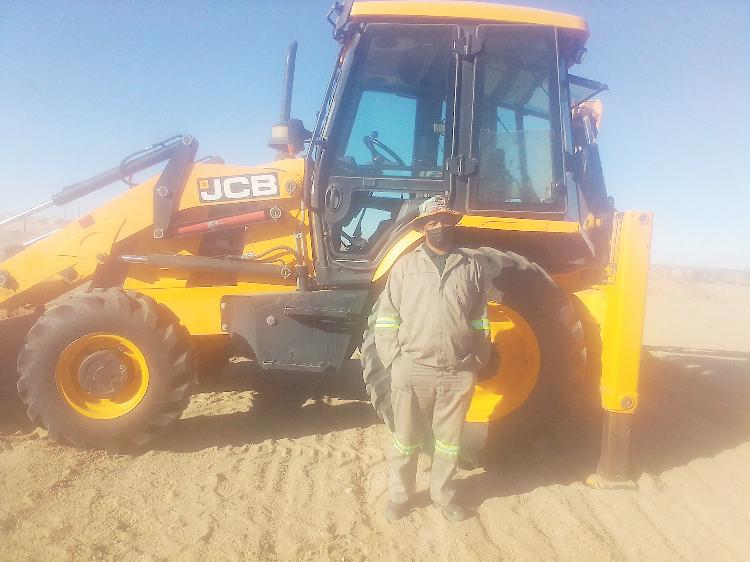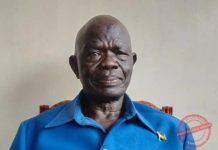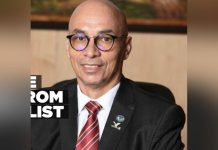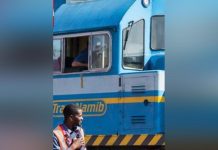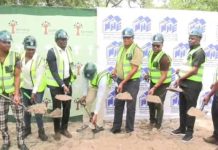Africa-Press – Namibia. MORNE Steenkamp (34) has been digging graves at Mariental’s municipal cemeteries for the past 11 months.
Every day of the week is a work day for Steenkamp. Before setting off, he kneels down to thank his Maker for blessing him with another day to fight for survival.
As soon as he walks into the office, he is instructed by the Mariental Municipality to dig yet another grave. For the past four months he has been digging graves for those whose lives were cut short by Covid-19.
On a chilly winter morning, Steenkamp begins his day by operating the yellow JSB front-loader which digs graves. “Usually when I sit in the machine, I think about how my work was easier before the pandemic. I’ve never lost so many people from my community before. This is a sad reality,” Steenkamp says.
These days he spends most of his time at the three cemeteries in the town. One in Aimablaagte, one in town and another at Empelheim informal settlement.
Steenkamp says he spends more time at Empelheim and Aimablaagte cemeteries because it takes over an hour to dig a grave there, while in town it only takes 45 minutes because the soil is soft and easier to work with.
“It’s my job but it’s not easy because I feel my life is at risk,” he says.
It may seem that a gravedigger’s work is relatively safe during the Covid pandemic but according to Steenkamp, he is the only person given the responsibility of operating the JSB machine. Sometimes he finds himself in the crossfire.
“There are cases when I have to dig a grave next to a Covid burial and there is a high possibility that I might get infected,” he says. “Sometimes when I bury the Covid victims I can’t help imagining what would happen if the same thing happens to me or my family, what if I pick up the virus when I am on duty and infect them?”
After Steenkamp digs the first part of the grave, he gets off the JSB machine to measure the depth of the grave. The depth of a normal grave is 1,8 metres and a grave for a Covid body is required to be 2,1 or 2,8 metres deep.
His brown overall is covered in dirt from his head to his shoes, and his hands are rusty. “This is how I look every day when I get home, I guess it comes with the package,” he jokes.
As he stands beside the machine, he expresses how much he loves his work. “I believe the love I have for machines started at a young age, that’s why it’s so easy to do my job,” he adds.
Before Steenkamp was offered a job at the Municipality last November, he worked for five years at Namibia Dairies- !Aimab Superfarm and as a truck driver for a transportation business for four years since 2017.
For the past six months, 69 Covid-19 bodies were buried at Aimablaagte informal settlement, 23 at the town cemetery and 36 at the Empelheim informal settlement.
As Covid-19 cases have subsided, Steenkamp adds that his workload has also lessened. “Last week and this week (past week) I only had to dig two graves.” After he is done for the day, he heads to his home located at Aimablaagte informal settlement where he lives with his two children and partner.
Steenkamp’s long-time partner Marissa Esau (28) says when he comes home, she immediately sends him to the bathroom for him to shower, wash his clothes and sanitise.
“It’s not that I have a problem whem he comes home dirty, as long as I know he comes home safely and protects himself against Covid-19, then I’m happy,” she said.
Municipality community development officer Domingo Matesu says there is enough burial space left at Mariental until next year, unless the numbers increase.
“We have more than enough space for burials in all three cemeteries,” says Matesu.

